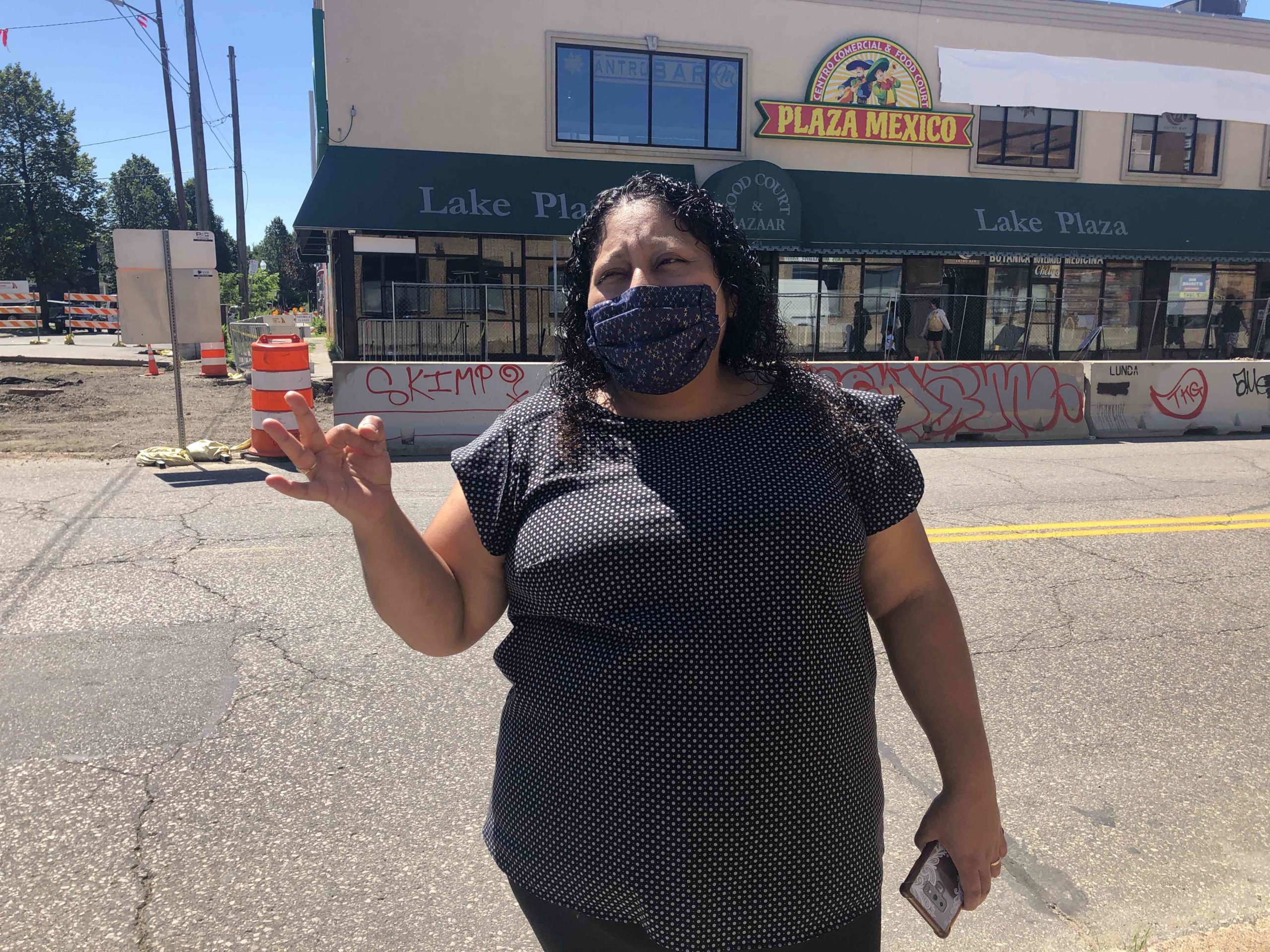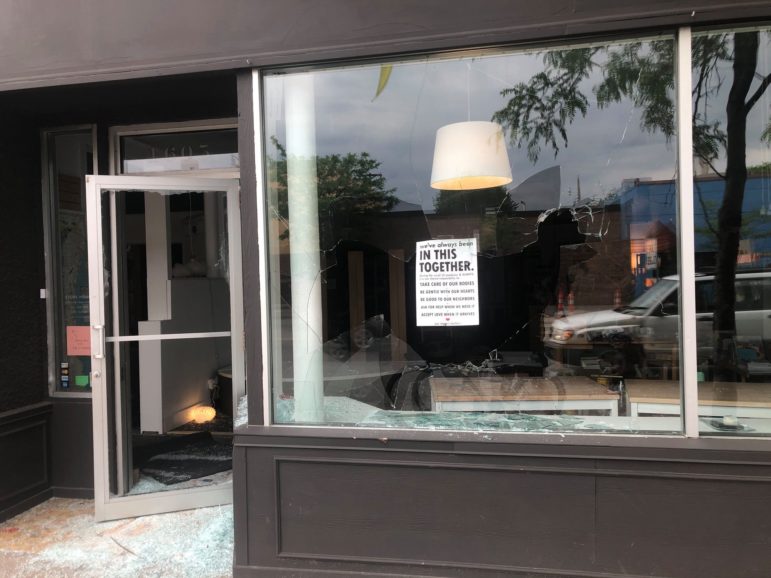

Share
Note: The Interview was conducted in Spanish. Translations are the authors.
Mayela De La Rosa is exhausted and bewildered, putting the pieces together on Lake Street following the murder of George Floyd. “It hurts to see all this destruction,” she said, as we spoke over Zoom about her experience.
What she faces on a day to day basis reflects what immigrant communities in South Minneapolis have been facing under COVID-19, compounded by the destruction during the uprising.
On most days Mayela knows that her community and family are overlooked. The response from local and statewide leaders and decision-makers since the outbreak of COVID-19 makes her feel essential but also disposable and forgotten.
Mayela, her husband and children live three blocks from Lake Street, steps from the uprising following the murder of George Floyd.
Those were very stressful and sad days.
In the long nights that followed, Mayela joined with neighbors to patrol and protect their homes and businesses.
The consecutive days of stress and anxiety left most people wired and unsettled. There was little rest. Laying down felt stressful, a reminder of the constant adrenaline and anxiety Minneapolis was collectively experiencing.
The urgency of the uprising necessitated preparations and articulating plans.
“We went outside to keep an eye on things with floodlights. Mutual aid groups formed and we got to know our neighbors. We did see suspicious things and ran off a group of suspicious youth. It was tiring but it was necessary.”
“During the fires, we had “go” bags. We spoke to our children and explained that if we had to leave it was because the most important thing is protecting our family. It was hardest on my daughter, she cried,” Mayela explained.
Access to daily staples started becoming a distant hope. All the local groceries and delis that working-class immigrants rely on had been burned down. Without a functioning bus system, many struggled to eat. Local commerce is one way that people interact, shaping a shared identity. The loss of these stores meant a loss of identity. Mayela and her husband have more mobility so they have been able to drive to get groceries, for themselves and others. However, going farther meant Mexican staples were elusive.
Mayela works with CTUL as a community advocate. The stories she heard reflected the harsh reality for immigrant workers.
“I heard the same things I am struggling with, food and rent. I get to tell folks how to solve some of the problems.”
What people overwhelmingly asked for was the minimum needed to survive.
“People that come by tell me how much they are struggling because of reduced hours and limited or absent income. We don’t have access to unemployment or the stimulus check. There is no economic activity here.”
The possibility of evictions looms large for Mayela and those she helps, “I am very worried about the wave of coming evictions.”
According to Mayela, in the United States, “It’s difficult because you do everything you are supposed to do and then suddenly this situation happens” and everyone is left on the edge.
What she has observed also reinforces her distrust in decision-makers.
Mayela asserts that, “Leaders can’t imagine our reality. They are too privileged to imagine how bad things are for us. It’s why we feel so discriminated against. We don’t feel as if the governor understands us and takes our concerns seriously. ”
Mayela goes on to explain why she feels that, “As immigrants, we always get left behind. My children go to MPS and the district voted for the integration plan.” She described Minneapolis Schools in forceful words, “The school district is a system of whiteness, created by whites for whites. The system is rotten.”

Mayela notes, “If things aren’t going well in education, then what should we expect. Education is the basis of everything.” By overlooking children like her own, MPS is shaping many of the challenges they will face, instead of giving these youth a chance to succeed.
“There is so much potential among our youth but there is no support. The system has forgotten us.”
From what Mayela has seen it seems as the US has shifted, “From a nation of immigrants to a nation of forgotten immigrants.”
From what she has experienced and seen she has concluded that, “The undocumented community has been left behind.” Nevertheless, she will continue working towards a world where immigrants are treated with dignity.
Her conviction has only strengthened over the years. “I came to the US with nothing. Just the clothes I had on, but I came with the hope of improving, getting better. Fighting for what I have never had.”
Mayela tells her kids. “In every place where you stand there is a place for you. If they try to remove you, fight for your place.”
Mayela explained that eventually just trying to survive needs to transition to being able to thrive. Mayela wants to fight so her children can stop surviving and start thriving.

